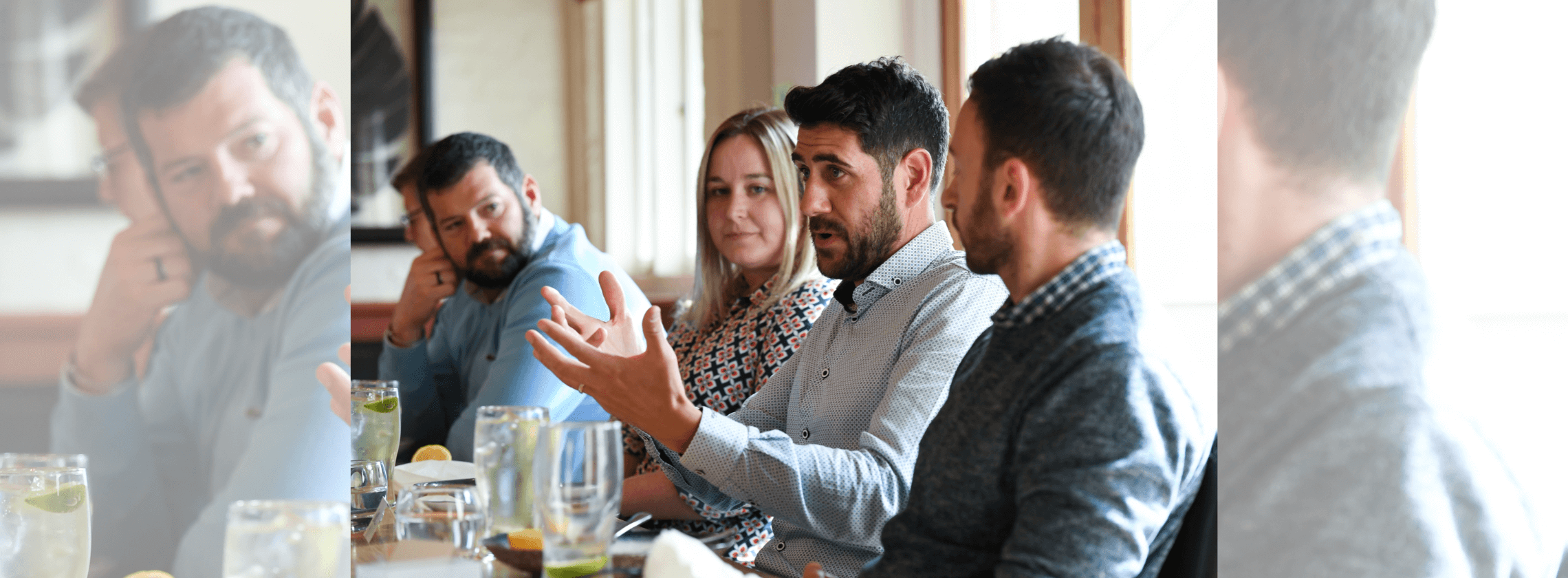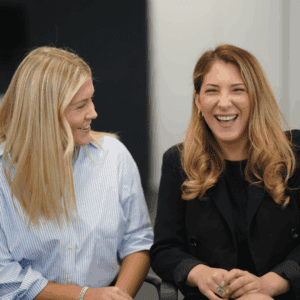Last month saw the latest in a series of Yellowyoyo’s regular events, The Lunch, that brings together leaders from the Milton Keynes business community to share their insights. Yellowyoyo Directors Bryan Wright and Amanda Wright were keen to discover whether their guests felt that the development of clear values and culture helped to bring about business success.
Joining the conversation in the private dining room at The Swan in Salford, were Sarah Mills, founder of Global & Inclusive; Jerry Taylor founder of TRT Communications; Laxman Kastala BEM, a business owner in the UK and India; Joe Gilbert, Managing Director of Red Giraffe; leadership specialist Antoinette Oglethorpe, founder of Antoinette Oglethorpe Ltd; Ian Taylor of Tinderbox Ltd; Ian Revell CEO of MK Community Foundation; Natalie Drought, Director of Freeths LLP; and Gee Pugsley, Chief Commercial Officer at Aiimi.
Opening the conversation, Gee Pugsley emphasised the importance of Aiimi’s values and how they operate even in challenging environments.
He said:
“Values are a huge thing at Aiimi, and they’re not just words on a wall. A challenge we have is that we have consultants working in other people’s businesses and those businesses might have different values to ours. Our values are strong enough that when our people operate in someone else’s environment, they can represent Aiimi and our culture, whilst still working within the client’s values.”
Bryan Wright agreed, drawing on his experience:
“At Yellowyoyo, we often find ourselves working with clients who might have different ways of doing things, but it’s about maintaining that balance between representing our values and adapting to theirs. It creates a richer, more resilient working relationship when you don’t lose sight of your own ethos.

These comments set the tone for a wider discussion on how businesses can maintain their values while adapting to different environments and client needs.
Ian Taylor of Tinderbox highlighted the delicate balance of blending his company’s values with those of his clients:
“It’s about how to fit the two together in a cohesive way. If I become part of their culture and values, is that helping them, or should I stick to my own values? I always explain what I’m doing and why and encourage clients to do the same. There’s never a single answer, but I think people buy into why you do things, not what you do. Whatever your values, if you run your business based on why you do things, you will probably get better outcomes.”
This point on blending values led to a discussion on how different cultures impact business approaches. Laxman Kastala, who manages businesses in both the UK and India, offered an international perspective on how cultural differences shape the application of values.
He said:
“There’s a massive difference in cultures with companies abroad. I actually need to change as a person when I’m managing my business in India, and I can’t manage my business or charities here the way I manage my business there. That’s why a lot of companies who move to different countries find they aren’t successful. If they don’t adapt to the culture they’re operating in, it simply won’t work.”
Amanda Wright agreed, adding a broader view:
“Brands can’t assume that a one-size-fits-all approach will work globally. Understanding the cultural nuances and allowing those to influence your approach – without losing your core values – can be the difference between success and failure.”
This shifted the focus toward how companies can scale while remaining true to their values, with Natalie Drought describing how values have shaped the firm’s growth:
“Freeths has grown in recent years, mostly organically, sometimes by acquisition, but at heart we have held on to our values. We work in a certain way and do things because we know it is the right thing to do, and we see that run all the way through the organisation from the top down, with everyone living the values.”
“That’s why, although at my level I don’t have to go into the office very often, I’m aware that we have lawyers at every stage of their careers, and fundamentally we need to be present for them. To allow them to join in the off-hand conversations, or come in on a client meeting, so that they see the way we do things. You can’t teach that; they have to experience it.”

Ian Revell, who alongside his role at MK Community Foundation is also a governor of Milton Keynes College, brought the conversation around to the creation of a culture that embraces different ideas, sharing his views on the significance of inclusivity:
“Inclusivity and the confidence to speak is very important. Recruitment into courses at the college focuses a lot on neurodiversity, ethnic minorities and disability inclusion. Remember, there was a common purpose at Bletchley Park but the person that ultimately had the answer was not the person you would have gone to for an answer. The purpose was the common bit, but how you got there was not even imagined, and look at the leap that made.”
“If you want to break through barriers, you need people who think outside the box, who want to challenge others. If you’re aiming to break those barriers, having a team of people who all think the same way is not ideal.”
Amanda Wright expanded on this, particularly in the context of creative industries:
“Inclusivity is so important, especially in creative environments. You can’t innovate without different perspectives, and having people who are willing to push boundaries is what keeps a business forward-thinking and relevant.”
Jerry Taylor emphasised the need for regular reflection on company values, saying:
“What I’ve realised over the years is that you need to take regular time out to concentrate on your values. They are fragile and almost as soon as you think you’ve got them right, they can evaporate and be gone if you don’t give them the time and effort they deserve. Review your values reasonably regularly. As a small organisation, there are so many different pressure points and influences, you can’t keep on top of all of them, but you can keep an eye on your people and how they embrace and demonstrate your values on a day-to-day basis.”


The group moved on to recruitment and onboarding people aligned with organisations’ values. Sarah Mills brought a practical perspective, comparing it to a Formula 1 pit crew.
She said:
“The reason a pit stop takes seconds is because the team have done all the prep beforehand. It’s about front-loading recruitment and staff development with these values and expectations. Doing the groundwork and knowing what you want from people means that when you have to call on them to step up, you can call on them very quickly.”
Reflecting on the discussion, Antoinette Oglethorpe said:
“I’m trying to create a culture and a sense of belonging in a team that all work remotely, so everything we’ve talked about today feeds into that. It’s given me lots to think about, there is no simple answer, but I think it’s a reminder about tying values to the skills aspect – that’s how you can get the best from people.”
Joe Gilbert described how a strong value system fuels innovation within his company:
“We’ve always fostered an innovative culture where the best ideas come from the team. We’ve even cancelled events that didn’t align with our values because we believe if we can’t deliver brilliance, we won’t do it at all. I firmly believe how you do one thing is how you do everything.”
Bryan Wright wrapped up the session with a key takeaway:
“Consistency in values doesn’t just apply to the big things. It’s in the everyday actions and decisions that your brand identity and culture are truly defined.”
For more information about business transformation and exit company, Yellowyoyo, and to enquire about being a guest at The Lunch, visit the website















